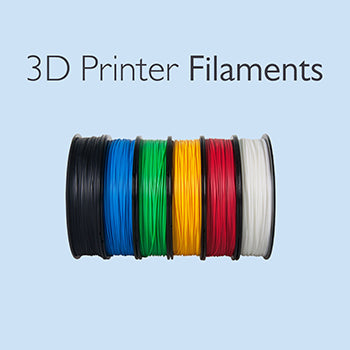
3D Printing Materials Guide
| Wayne Chen
All the 3D printing materials are presented here.This can help you choose the best material for your next project or improve the quality of the print.
ABS
ABS is a low-cost material that is very suitable for printing durable parts that are resistant to high temperatures.
Flexible
Flexible filaments, commonly known as TPE or TPU, are known for their elasticity, making the material easy to stretch and bend.
PLA
PLA is the preferred material for most users due to its ease of use, high dimensional accuracy and low cost.
HIPS
HIPS is a lightweight material most commonly used as a ABS soluble support structure.
PETG
PET and PETG filaments are known for their ease of printing, surface finish and water resistance.
Nylon
Nylon is a hard semi-flexible material with high impact and wear resistance.Ideal for printing durable parts.
Carbon Fiber Filled
The carbon fibre contains short fibres which are injected into the PLA or ABS foundation material to help increase strength and stiffness.
ASA
ASA is a common substitute for ABS, which is very suitable for outdoor applications due to its high uv light, high temperature and impact resistance.
Polycarbonate
Polycarbonate is known for its strength and durability.It has high resistance to heat and impact and is ideal for harsh environments.
Polypropylene
Polypropylene is characterized by fatigue resistance, semi-flexibility and lightweight, and is suitable for high circulation and low strength applications.
Metal Filled
Metal filled filaments are made by mixing fine metal powder into the base material, providing unique metal surface treatment and weight gain.
Wood Filled
Wood filaments combine a PLA base material with cork, wood dust, or other derivatives, giving the models a real wooden look and feel.
PVA
PVA is commonly known for its ability to dissolve in water and is often used as a supporting material for complex prints.
